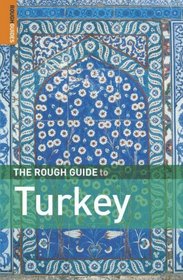Search -
The Rough Guide Turkey 5 (Rough Guide Travel Guides)
The Rough Guide Turkey 5 - Rough Guide Travel Guides
Author:
INTRODUCTION Turkey is a country with a multiple identity, poised uneasily between East and West - though, despite the tourist brochure cliché, it is less a bridge between the two than a battleground, a buffer zone whose various parts have been invaded and settled from every direction since the beginning of recorded history. The country is now ... more »
Author:
INTRODUCTION Turkey is a country with a multiple identity, poised uneasily between East and West - though, despite the tourist brochure cliché, it is less a bridge between the two than a battleground, a buffer zone whose various parts have been invaded and settled from every direction since the beginning of recorded history. The country is now ... more »
ISBN-13: 9781843530718
ISBN-10: 1843530716
Publication Date: 7/28/2003
Pages: 1,088
Edition: 5
Rating: ?
ISBN-10: 1843530716
Publication Date: 7/28/2003
Pages: 1,088
Edition: 5
Rating: ?
0 stars, based on 0 rating
Genres:
- History >> Asia >> Turkey
- Travel >> Asia >> General
- Travel >> Asia >> Turkey >> General
- Travel >> Reference >> Guidebooks
- Travel >> Travel Writing
- Travel >> Guidebook Series >> Rough Guide
- Travel >> Middle East >> General




